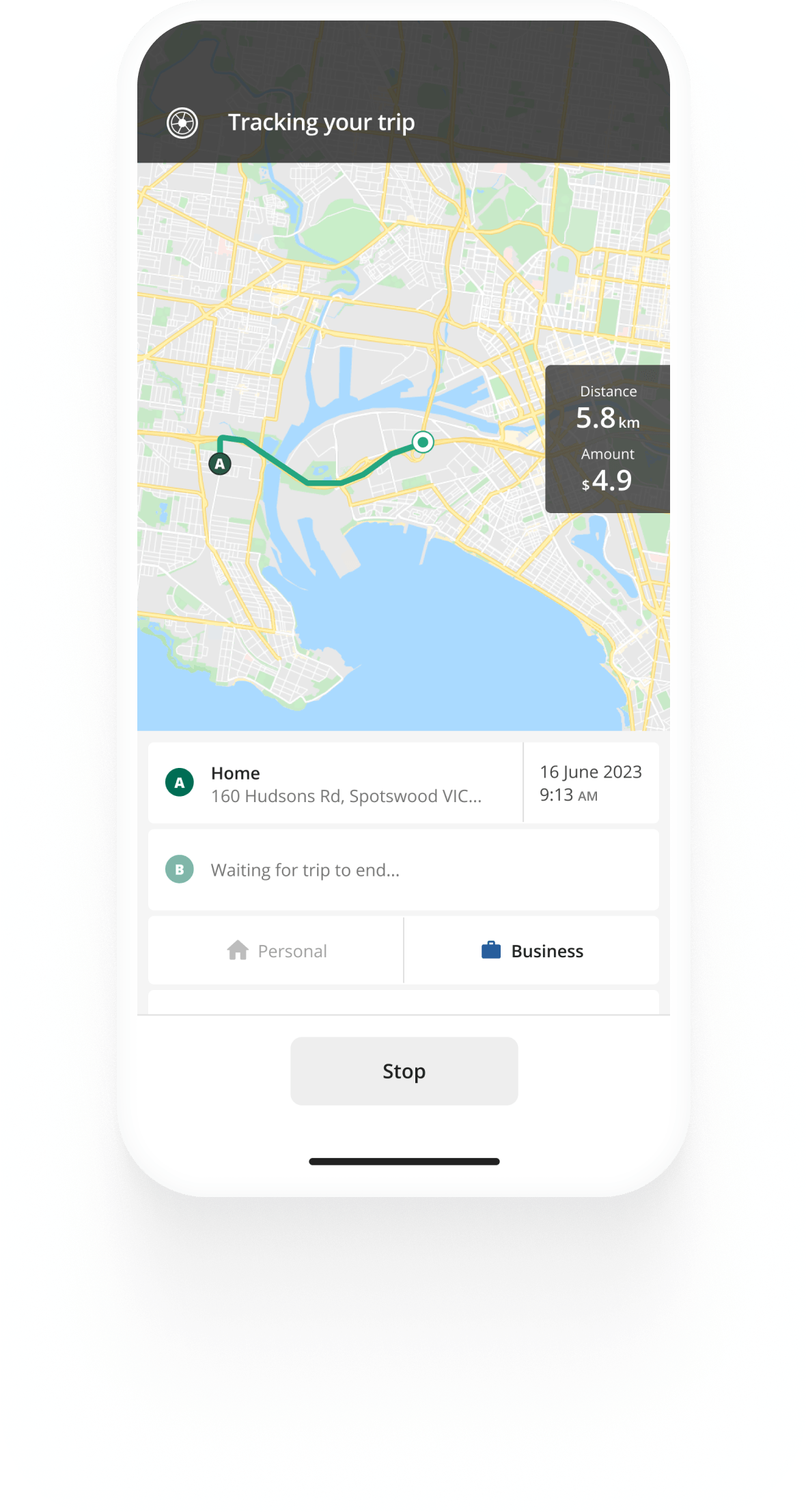Track mileage automatically
Get startedRideshare Car Insurance
If you’re considering becoming a rideshare driver, one of the things you may or may not have considered is insurance. Across all rideshare providers, some forms of insurance are compulsory, and some are not.
Here is a roundup of the main types of insurance you should consider for yourself and your vehicle.
Compulsory third party (CTP)
As the name suggests, this insurance is compulsory across Australia and is included in car registration each year. It is also the minimum insurance requirement across all major rideshare providers.
The purpose of this insurance is to protect drivers against the financial impact of causing any kind of injury or death in a motor vehicle accident, including coverage for any passengers in your vehicle.
It’s important to note that CTP does not cover you for any kind of property damage.
CTP costs vary depending on the provider, and you can choose to change providers when your registration comes up for renewal. Costs also vary from state to state. On average you can expect to be paying anywhere from around $370 through to nearly $500 on top of your annual car registration costs.
Rideshare companies all expect you to be CTP registered for the state that you intend to drive in, so make sure you check this on your registration paperwork.


Kilometre tracking made easy
Trusted by millions of drivers
Automate your logbook Automate your logbook

Automatic mileage tracking and ATO-compliant reporting.
Get started for free Get started for freeComprehensive vehicle insurance
Comprehensive vehicle insurance is a good thing to have but not a requirement for being a rideshare driver for major providers like Uber, Didi, DoorDash, and Menulog.
This kind of insurance covers your vehicle against damage from a wide range of events, including accidents, storms, and fires. It also insures your vehicle against theft. Comprehensive insurance will also cover you in the instance that you were to damage someone else’s property in an accident.
Unfortunately, it can be quite expensive, with costs based on a wide range of factors, from the type of car you drive to where you live, right through to the age of the driver, how long you’ve been driving, and whether or not you’ve been involved in any accidents before.
The average costs of comprehensive car insurance for 2024 are:
- Females under 25 - around $2,700
- Males under 25 - around $3,000
- Males and females 25-29 - around $2,100
- Males and females 30-49 - around $1,600
- Males and females over 50 - around $1,250
As previously mentioned, comprehensive insurance is not a requirement to become a rideshare driver, but it does provide you with good peace of mind.
If you already have a comprehensive insurance policy in place, you will need to inform your insurer that you intend to start using the vehicle for rideshare purposes. This often comes with an extra cost on your insurance as it can be considered somewhat riskier than normal day-to-day driving. Some insurance providers may not even cover you for rideshare, so it’s always advisable to contact your provider and find out.
If you’re looking for a convenient way to compare costs across multiple providers, you can use a website like Compare the Market.
Comprehensive insurance can be paid annually or monthly, with the annual option often proving somewhat cheaper than paying in monthly instalments.
Third-Party Fire and Theft
A somewhat cheaper alternative to comprehensive insurance is third-party fire and theft (TPFT) insurance. This is another type of non-compulsory insurance that gives you peace of mind and a bit of extra protection. If you’ve already got comprehensive insurance in place, you don’t need TPFT insurance.
TPFT insurance covers you for any damage that your vehicle may do to another person's property. It also covers you in the instance your vehicle is damaged in a fire, or is stolen.
Once again, costs can vary hugely across providers, and your driver history and the type of vehicle you drive will all affect your overall premium. Some providers offer insurance as low as around $500 from anywhere up to $1000. As with comprehensive, it is also worthwhile mentioning to your provider that you are planning on doing rideshare driving.
Websites like Compare the Market and Finder allow you to compare insurance providers for TPFT insurance. As with all insurance, these policies need to be renewed annually, so you can always shop around each year.
Personal Accident Insurance
Personal Accident Insurance is another type of non-compulsory insurance coverage. Even though it isn’t compulsory it is still worthwhile considering as this kind of insurance covers you personally for loss of income in the instance that injury or illness results in you being unable to work.
Uber, Menulog, and Doordash all provide a free version of this to their drivers. It doesn’t cover illness, but it will cover you if you suffer an injury while working for them.
Other rideshare companies like DiDi, Ola, and Shebah don't offer this insurance, so it is worthwhile reading the full T&Cs and considering taking out your own private policy if this is not available on your platform.
State-specific insurance
Generally, insurance requirements are nationwide; however, there are a couple of exceptions on the Uber platform:
- Rideshare drivers in Perth are required to have 3F Motor Injury insurance, which is a combination of CTP and Catastrophic Injuries Support (CIS) insurance.
- Tasmanian Uber drivers must, in addition to CTP, have either third-party property or comprehensive car insurance.

Tired of logging mileage by hand?
Effortless. ATO-compliant. Liberating.
Rideshare & Delivery Drivers' Guide
- Uber Driver Requirements
- Uber Eats Driver Requirements
- DoorDash Driver Requirements
- Rideshare Car Rentals in Australia
- Rideshare Car Insurance
- Rideshare & Delivery Driver Tax Requirements
- Best Cars for Uber
- Uber Premier Cars and Requirements